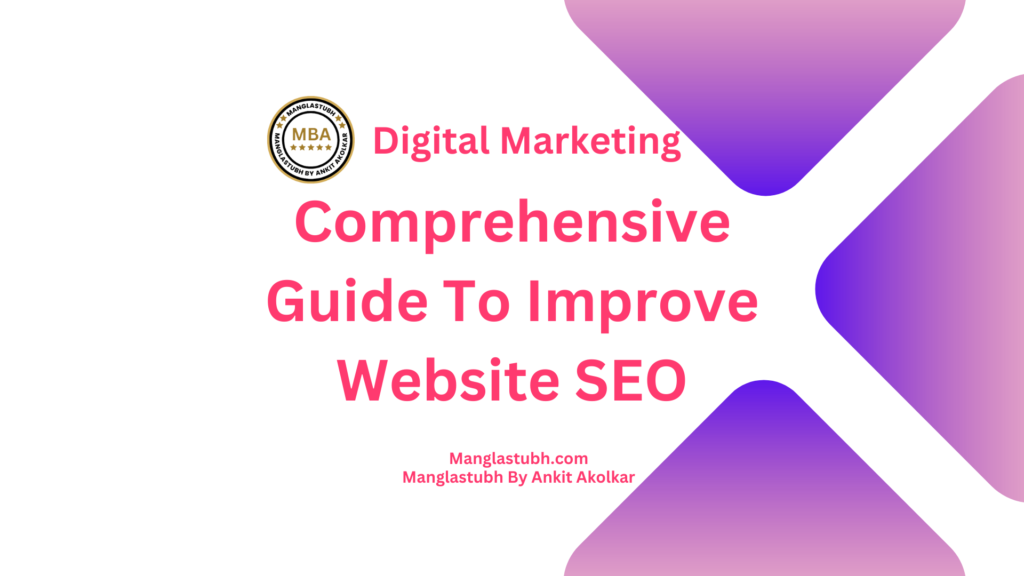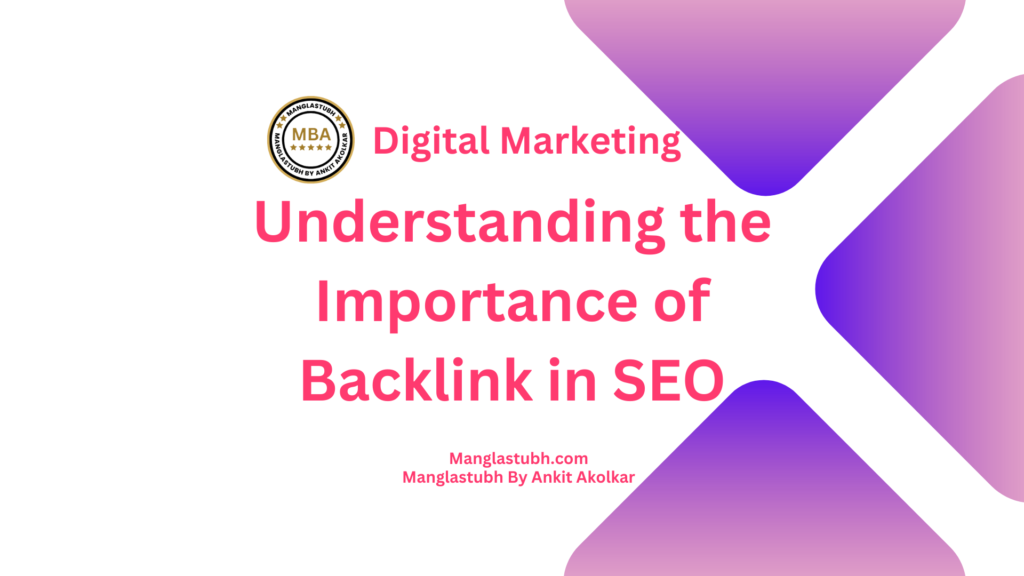INTRODUCTION
Let’s learn IMPROVING WEBSITE SEO. Search Engine Optimization (SEO) stands as a cornerstone of any successful online strategy. The digital landscape is competitive, and to stand out, businesses must prioritize SEO to enhance their website’s visibility, boost organic traffic, and improve overall user engagement. But the question remains – how can you Improving Website SEO?
Understanding & IMPROVING WEBSITE SEO
Before delving into the strategies for enhancing SEO, it’s essential to understand what SEO entails. At its core, SEO is a strategic process designed to enhance a website’s visibility in search engine results. By optimizing a website’s design, content, and structure, businesses can achieve higher rankings on search engine result pages (SERPs), driving more organic (unpaid) traffic their way. Today we will learn about Improving Website SEO

1. Keyword Research
Improving Website SEO. Effective SEO begins with comprehensive keyword research. Keywords are the phrases that users type into search engines when seeking information. By understanding the keywords relevant to your business, you can optimize your content to match user queries better. Tools like Google Keyword Planner or SEMrush can help identify high-volume keywords in your industry.
2. Quality Content
Improving Website SEO. While keywords are crucial, they are not the only factor in improving SEO. Quality of content is an essential component of any Seach Engine Optimization strategy. By creating engaging, informative, and original content, you provide value to visitors, encouraging them to stay longer on your site. Search engines favor websites that offer high-quality content, rewarding them with higher rankings.
3. On-Page SEO
Improving Website SEO. On-page SEO refers to the practice of optimizing individual web pages for specific keywords. This includes not only the content but also the HTML source code. Crucial on-page SEO elements include the title tag, meta description, header tags (H1, H2, etc.), and keyword frequency and density within the content.
“In the journey to digital success, SEO is your compass. Navigate wisely and you’ll reach your destination.”
Manglastubh By Ankit Akolkar
4. Mobile-Friendly Design
Improving Website SEO. As more users access the internet through mobile devices, a mobile-friendly website design is increasingly important. A mobile-optimized site not only improves user experience but is also favored by search engines. Google, for instance, implements a mobile-first indexing strategy, which means it primarily uses a website’s mobile version for ranking.
5. Website Loading Speed
Improving Website SEO. The loading speed of your website plays a vital role in SEO. If a site takes too long to load, users are more likely to abandon it, leading to a high bounce rate, which negatively impacts your website’s SERP ranking. Numerous online tools, such as Google’s PageSpeed Insights, can analyze your website’s loading speed and provide suggestions for improvement.
6. Backlink Building
Improving Website SEO. Backlinks are links from some other websites that direct users to your site. They are vital for SEO as they signal to search engines that other websites vouch for your content, enhancing your site’s credibility and authority. The key to building backlinks is creating high-quality content that others find valuable and want to link to. Guest posting on reputable sites in your industry can also help build backlinks.
7. User Experience (UX)
Improving Website SEO. Lastly, focusing on the overall user experience is essential in improving SEO. A site that’s easy to navigate, understandable, and visually pleasing is likely to keep visitors engaged longer. Metrics such as bounce rate and time spent on the site are indirect ranking factors, meaning a better UX can lead to improved SEO.
Implementing an SEO strategy
Improving Website SEO is not a one-time task but an ongoing effort. SEO trends and algorithms evolve constantly, and staying abreast of these changes is critical. By focusing on the key areas outlined above, you can significantly improve your website’s SEO, driving more traffic, improving brand visibility, and ultimately boosting conversions and revenue.
From understanding the importance of keyword research and creating high-quality, engaging content to optimizing individual web pages (on-page SEO), ensuring your website design is mobile-friendly, improving website loading speed, building high-quality backlinks, and focusing on the overall user experience, there are many factors that contribute to successful SEO.
In essence, SEO is an investment in your website’s future. While it might seem complex and time-consuming, the benefits of a well-executed SEO strategy are immense. Not only does it increase your website’s visibility on SERPs, but it also improves user experience, credibility, and ultimately drives conversions and business growth.
Best WordPress Plugins to Improving Website SEO
- Yoast SEO
- All in One SEO Pack
- SEMrush SEO Writing Assistant
- Google XML Sitemaps
- WP Super Cache
- Broken Link Checker
- SEO Friendly Images
Remember, patience is key
SEO isn’t an overnight process. It requires patience, but the payoff is worth the effort. By implementing these SEO best practices, you’ll create a solid foundation for your website, setting the stage for increased visibility, higher organic traffic, and improved user engagement.
Always keep in mind that SEO is a continually evolving field. What works today might not work tomorrow. Stay updated with the latest SEO trends and changes in search engine algorithms to ensure your website stays relevant and visible.
Conclusion
In conclusion, a well-executed SEO strategy is key to improving your website’s visibility, driving more traffic, and boosting conversions. While it may seem like a daunting task, understanding and applying these fundamental SEO principles can set your website on the path to success.
Disclaimer
This article is subject to changes as SEO strategies evolve over time. Always stay updated with the latest SEO practices to ensure your website stays competitive in the digital landscape.
Frequently Asked Questions
What is SEO and why is it important?
What are keywords and why are keywords important for SEO?
What is the role of quality content (QA) in SEO?
What is On-Page SEO?
How does a mobile-friendly design improve SEO?
More FAQ
Why is website loading speed important for SEO?
What are backlinks links and how do they improve SEO?
What is the role of User Experience in SEO?
How long does time take to see results from SEO?
Do I need to know how to code to improve my website’s SEO?
A COMPREHENSIVE GUIDE TO IMPROVING WEBSITE SEO. Manglastubh By Ankit Akolkar. Search on Google Free Online Courses.

Welcome to Manglastubh By Ankit Akolkar. Manglastubh website is designed and developed for all kinds of Knowledge-Based Blogs and Articles. Everyone will gain knowledge over here from this website.






